#Acute and chronic renal failure
Photo
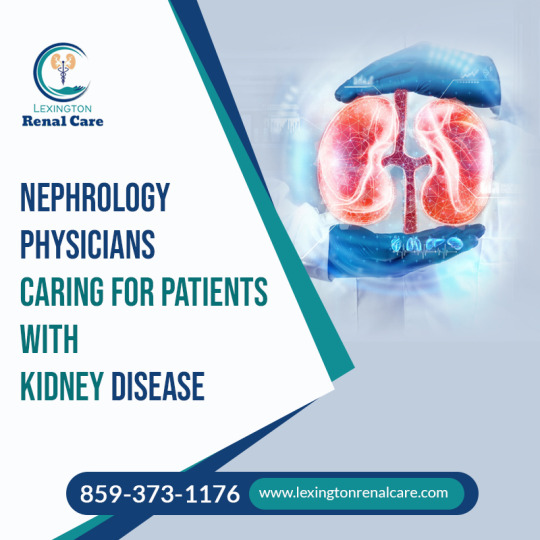
Nephrology is the subspecialty of internal medicine that focuses on the diagnosis and treatment of diseases of the kidney. Lexington Renal Care Physicians Services in Kentucky We provide services that help you with the prevention and treatment of kidney disease.
#Hypertension#Proteinuria and Hematuria#Diabetic nephropathy#kidney disease#Glomerular diseases#Acute and chronic renal failure#Inherited renal diseases#polycystic kidney disease#Evaluation#management of kidney transplant#recipients and donors#Disorders of fluid#electrolyte and acid-base#Nephrolithiasis#kidney stones#disorders of calcium#parathyroid hormone#Osteoporosis#metabolic bone disease#dialysis#In-center dialysis#peritoneal dialysis#home hemodialysis#nocturnal hemodialysis#Managing anemia#chronic kidney disease
0 notes
Text
Cutting Edge Methods for Successful Kidney Cyst Therapy
Kidney cysts are fluid-filled sacs on or within the kidneys, often leading to concerns about kidney function and overall health. This article explores various aspects of kidney cyst treatment, focusing on homeopathic remedies for managing creatinine levels, acute kidney injury, and chronic kidney disease.
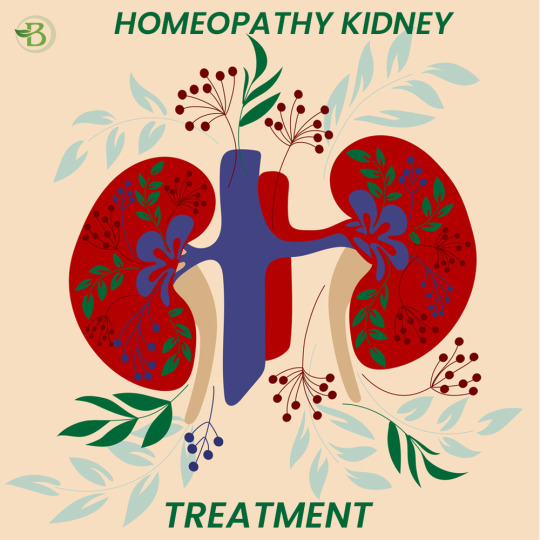
Understanding Kidney Cysts:
Kidney cysts are typically noncancerous and may not always cause noticeable symptoms. However, they can grow over time, potentially leading to complications such as infection, bleeding, or interference with kidney function. Treatment options for kidney cysts depend on factors like size, symptoms, and the underlying cause.
Conventional Approaches to Kidney Cyst Treatment:
Monitoring and Observation:
Small, simple kidney cysts may require no treatment but regular monitoring to track changes.
Pain Management:
Pain associated with kidney cysts can be alleviated with over-the-counter pain relievers or prescribed medications.
Aspiration:
Sometimes, a healthcare professional may drain fluid from the cyst using a needle, reducing its size and relieving symptoms.
Homeopathic Approach to Kidney Treatment:
Homeopathy offers a comprehensive and personalised approach to treating kidney cysts, focusing on stimulating the body's natural healing mechanisms. Additionally, homeopathic remedies are gaining recognition for their potential to manage creatinine levels and address acute kidney injury and chronic kidney disease.
Best Homeopathic Medicine for Creatinine:
The best homeopathic medicine for creatinine is beneficial in managing elevated creatinine levels. However, it's crucial to consult a qualified homeopathic practitioner for personalised recommendations.
Homeopathy for Kidney Treatment:
Homeopathic remedies for kidney cysts are chosen based on the individual's symptoms and constitution.
Acute Kidney Injury Treatment with Homeopathy:
Homeopathic remedies may be considered for acute kidney injury treatment, addressing symptoms like swelling, pain, and impaired kidney function.
Homeopathic Management of Chronic Kidney Disease:
Constitutional homeopathy kidney treatment, considering the person's overall health and unique symptoms, may help slow the progression of chronic kidney disease.
Conclusion:
In conclusion, kidney cyst treatment involves a multifaceted approach, incorporating conventional medical interventions and complementary therapies like homeopathy. The choice between conventional and homeopathic kidney treatment may depend on the severity of symptoms, individual preferences, and healthcare professionals' guidance. For managing creatinine levels and addressing kidney disorders, a holistic perspective that combines conventional and homeopathic approaches may offer comprehensive care for those dealing with kidney cysts, acute kidney injury, or chronic kidney disease. Always consult qualified healthcare professionals and homeopathic practitioners for personalised advice and treatment plans.
#Kidney treatment by homeopathy#homeopathic medicine for renal cyst#homeopathic remedy for kidney infection#kidney cyst treatment#homeopathy kidney treatment#acute kidney injury treatment#Homeopathic treatment for kidney failure#Homeopathic medicine for high creatinine#Homeopathic medicine for kidney failure#Chronic Kidney Disease#Homeopathic Medicine for Renal Cyst
0 notes
Link
हमारी किडनी शरीर में संतुलन बने रखने के कई कार्यों का निष्पादन करती हैं। वे अपशिष्ट उत्पादों को फिल्टर करके पेशाब से बहार निकालते हैं एवं निष्कासन करते हैं वे शरीर में पानी की मात्रा, सोडियम, पोटेशियम और कैल्शियम की मात्रा (इलेक्ट्रोलाइट्स) को संतुलित करते हैं। वह अतिरिक्त अम्ल एवं क्षार निकालने में मदद करते हैं जिससे शरीर में रसिद एवं क्षार का संतुलन बना रहता है। शरीर में किडनी का मुख्य कार्य सुन का शुद्धिकरण करना है जब बीमारी के कारण दोनों किडनी अपना सामान्य कार्य नहीं कर सके, तो किडनी की कार्यक्षमता कम हो जाती है। जिसे हम किडनी फेल्योर कहते हैं।
#acute renal failure in hindi#chronic renal failure in hindi#kidney failure in hindi#kidney failure symptoms in hindi#renal disease in hindi#renal failure in hindi#kidney transplant#Kidney Transplant Doctor
0 notes
Text
Trying not to run screaming in the streets over the absolute horseshit conclusion printed on Tokitae’s official necropsy report.
Old age? OLD FUCKING AGE???? She was in her 50s! Her mom is still swimming free at a grand 98 years. J2 was 106 when she died. 50s is not “died of old age” territory for her pod. For a captive orca 50 is old age sure, but WHY IS THAT HMMM????? Why are captive orcas expected to live half as long as wild ones I wonder??? I am BITING.
And what was with all the “she’s in great health!” reports we got not two weeks before she died of- apparently- chronic and acute EVERYTHING? Heart disease, renal failure, pituitary mineralization, pneumonia… excuse me?????? Surely those weren’t all just conveniently missed in what I can only assume were the most useless health checks ever performed.
Anyways, I’m absolutely rabid in the worst way over this bullshit. Not even the decency to be honest about her after her death. Fuck the Miami Seaquarium, fuck the Dolphin Company, fuck Friends of Tokitae, and fuck every single facility that keeps cetaceans for entertainment.
#cipher vents#tw animal death#tw vent#holy shit#I don’t know why I expected some truth#and maybe closure#and gods forbid accountability#but silly me#hand over the clown nose#as if they’d ever let Toki have some fucking dignity#even in death#it’s Fine#I’m not even mad#im soooo fine#orca captivity
7 notes
·
View notes
Text
When caring for a patient in cardiac arrest, it is important to recognize reversible causes for the arrest and address them. This is especially important with PEA and asystole, which often have reversible underlying causes. The mnemonic Hs and Ts can help you to remember the reversible causes of cardiac arrest.
Hypovolemia
Hypoxia
Hydrogen ion excess (acidosis)
Hyper- or hypokalemia
Hypothermia
Toxins
Tamponade
Tension pneumothorax
Thrombosis (pulmonary embolism)
Thrombosis (myocardial infarction)
In patients with metabolic acidosis, the administration of an initial dose of sodium bicarbonate (1 mEq/kg) may be indicated. If administering sodium bicarbonate, ensure adequate ventilation for removal of carbon dioxide or sodium bicarbonate may worsen intracellular and tissue acidosis.
Suspect hyperkalemia in all patients with acute or chronic renal failure and in those who had a wide-complex ventricular rhythm and tall, peaked T waves on ECG before arrest. Several measures may be taken to reduce potassium levels, including administering sodium bicarbonate, glucose and insulin, or nebulized albuterol. Sodium bicarbonate is preferred in patients with cardiac arrest caused by hyperkalemia because it causes a rapid shift in serum potassium level. Other therapies take much longer to work.
Suspect hypokalemia in patients with dehydration or overuse of diuretics. In hypokalemia, flat T waves, prominent U waves and possibly prolonged QT intervals may be seen on ECG before arrest. Treatment is with intravenous (IV) administration of a dilute solution of potassium chloride.
7 notes
·
View notes
Note
i have trouble telling when i shud euthanize a cat? Like sometimes u dont gotta but ik ive read abt indigenous practices of domesticated animal euthanization of dogs so its nothing new, but if my cat gets lets say, kidney failure, i shud prly get him euthanized right? Hes 8 so this is still prly like 10 years away from now. But yeah ig if he cant eat either. But idk animals prly have different relationship to suffering than we do. Perhaps dont conceptualize it the same. they cling to life more dearly but also can take suicidal actions of risk. Animals are so daring and cool. Life is insane
So you said ignore this ask bc you were high as hell but I think it’s actually a really good question - something I didn’t know the answer to when my own geriatric cat had blood work that indicated she might have renal disease (UTIs in cats can ping the same things on diagnostics). I straight flipped out but my boss at my old petsmart job who also worked part time at a clinic explained to me that their own clinic cat had renal disease and had been living a good quality of life for years! With the right medication, cats can have their kidney disease progression largely slowed down to the extent that they die of something else years later. It’s kind of like the effect that leads them to not treat cancer in elderly human beings in some cases. It’s also not super expensive iirc, I just don’t know for sure because I haven’t had to deal w the situation. I’m the person who has to give a cat in boarding their fluids at my current job if they have renal disease and I’ve seen quite a few cats on fluids who were as old as 17 who had a good quality of life.
I am personally of the opinion that cats can have a good quality of life with renal disease or diabetes. Cats’ quality of life is in my opinion more threatened by the acute rather than the chronic situations.
It is also perfectly OK to make an appointment with your vet to go over a cat’s quality of life - in my experience we LOVE that, because there are a lot of people who really feel like they shouldn’t play god. This is absolutely a thing that is done and to me it’s actually appropriate to ask QOL questions with every new issue. I am also just extremely neurotic tho and I was already that level of neurotic before I worked in a clinic. But if you’re someone who is okay with euthanasia, don’t be afraid to ask the vet questions about quality of life.
Thank you for caring about your cat so much 💕 I’m also gonna have to look into indigenous methods of euthanizing animals because that’s genuinely extremely interesting and I’d love to chat about it with the vets at work lol that sounds morbid but I’m in the business of trying to get people to understand when love won’t save their animal and the argument that we didn’t “used to” euthanize in these situations is VERY common.
10 notes
·
View notes
Text
HIII my cat’s test results came back and the result is very positive !!!!! in the end he ended up having an acute renal failure, but this will not be chronic, and we were able to get him to the vet on time, where he was treated amazingly. we just need to monitor him closely but every parameter that was very high is now in normal range :-) thank you for your good thoughts and prayers<3
here’s the boy, now at home !!

#beloved bastard#i feel like i can breathe again#he still has some issues but now he’s not terminal or anything#.cats
20 notes
·
View notes
Text
What causes renal diseases in children?
Acute and chronic kidney failure are two forms of urinary system problems in children. Urinary tract infections, obstructions in the urinary tract, and birth defects are also included.
Kidney diseases may result in short-term or permanent alterations to the kidney's tiny structures and arteries. Scarring of these structures may occur as a result of frequent urinary tract infections. This may result in kidney failure (renal failure). Some diseases that cause kidney damage are:
Glomerulonephritis
Hemolytic uremic syndrome (HUS)
Polycystic kidney disease
Hydronephrosis
Infections of the urinary tract
for more information consult Dr. Advait Prakash one of the best Pediatric surgeon in Indore
3 notes
·
View notes
Text
Doctor's guides for kidney failure. What really causes kidney failure and how to prevent and manage it.
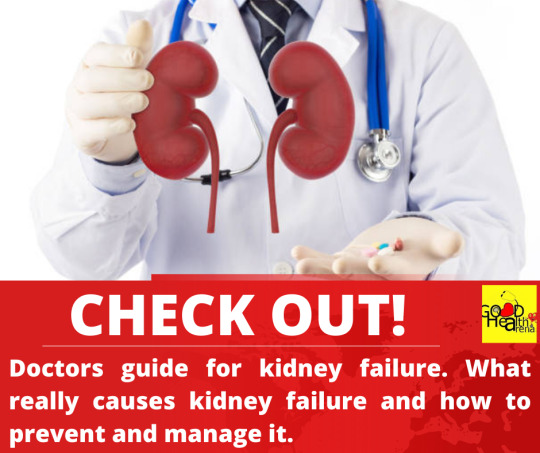
Kidney failure occurs when one or both kidneys can no longer function independently. Kidney failure is another name for this ailment. Dialysis and kidney transplantation are two treatments for kidney failure.
What does kidney failure entail?
Kidney failure (also known as renal failure) occurs when one or both kidneys no longer function properly. Kidney failure can be transient and strike suddenly. It can also be a chronic condition that worsens with time.
Kidney failure is a severe condition. Treatments like dialysis and kidney transplants, on the other hand, allow many patients with impaired kidney function to enjoy their entire lives.
What are the functions of the kidneys?
The kidneys serve a variety of functions. One of the most crucial things to assist your body in eliminating pollutants. The kidneys filter your blood and excrete waste through urine.
Kidneys are bean-shaped organs that are around the size of a fist. They are located under your ribcage, toward the back of your body. Most people have two functioning kidneys, but they can live happily if one is working correctly.
Waste products build up in your body when your kidneys aren't working correctly. You may become ill if this occurs. Kidney failure can be life-threatening in the most severe cases. However, with the correct medicine, many patients can manage renal failure.
What factors contribute to kidney failure?
Diabetes and high blood pressure are the most common causes of renal failure. However, kidney failure might strike suddenly due to an unanticipated reason.
Acute renal failure occurs when the kidneys lose function suddenly (within hours or days) (or acute kidney injury). Kidney failure of this type is usually only transient. Acute kidney failure can be caused by a variety of factors, including:
Kidney autoimmune disorders
Several drugs
Dehydration is severe.
A blockage in the urinary tract
Heart and liver disease are uncontrolled systemic diseases.
Kidney failure does not normally occur overnight. Chronic kidney disease is a disease that alters how your kidneys function over time. Chronic renal disease can progress to kidney failure if left untreated.
The following are the leading causes of kidney failure in people with chronic kidney disease:
Diabetes: Uncontrolled blood sugar levels can result from uncontrolled diabetes. Blood sugar levels that are consistently high can harm the body's organs, especially the kidneys.
High blood pressure (hypertension) is when blood flows more forcefully through your body's blood vessels. Untreated high blood pressure can harm the tissue of the kidneys over time.
Chronic kidney disease can also be caused by:
Continue here
#health & fitness#beauty#home & lifestyle#healthy snack#nutrition#workout#exercise#food#kidney#treatment#patient#disease#doctors#kidney failure#kidney disease#chronic disease#infection#infectious diseases#diseaseprevention
2 notes
·
View notes
Text
Dr. Amitabh Kulkarni: The Best Nephrologist in Dubai
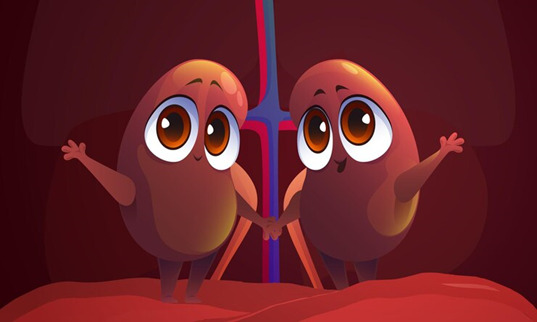
Finding a trusted healthcare provider is crucial, especially when it comes to specialized fields like nephrology, Dr. Amitabh Kulkarni stands out as the best nephrologist In Dubai, offering unparalleled expertise in kidney care and treatment. With years of experience and a compassionate approach, Dr. Kulkarni has become a trusted name for patients seeking the best kidney stone treatment and other nephrological services.
Extensive Experience in Nephrology
Dr. Amitabh Kulkarni brings a wealth of experience to his practice, having spent numerous years honing his skills in nephrology. As the best nephrologist in Dubai, he has dealt with a wide range of kidney-related issues, from chronic kidney disease to acute renal failure. His deep understanding of kidney health allows him to provide comprehensive care that addresses both the symptoms and underlying causes of kidney conditions.
Comprehensive Kidney Stone Treatment
Kidney stones are a common but uncomfortable condition that needs to be treated by professionals. Using the most recent methods and technologies, Dr. Kulkarni provides sophisticated kidney stone therapy that is both minimally invasive and successful. Patients value his attention to detail and the customized care plans he develops for them based on their individual requirements and medical background.
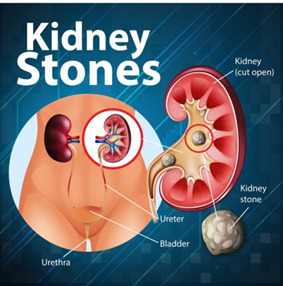
A Specialist for the Kidney
As a committed nephrologist, Dr. Kulkarni concentrates on offering specialists. For kidney stones, he also has experience with Glomerulonephritis, polycystic kidney disease, and diabetic nephropathy. In addition to providing treatment, his all-encompassing approach guarantees that patients receive instruction on how to preserve kidney health through lifestyle modifications and preventive measures.
Advanced Diagnostic and Treatment Facilities
With its cutting-edge diagnostic and therapeutic amenities, Dr. Kulkarni is one of the kidney specialist doctors in Dubai. His utilization of cutting-edge imaging methods, such as ultrasonography and CT scans, enables precise diagnosis and efficient treatment planning. His dedication to using cutting-edge technologies further solidifies his standing as a leading kidney specialist doctor in kidney care.
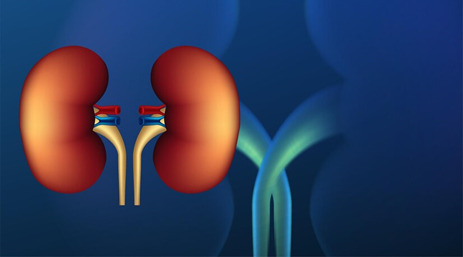
Patient-Centric Approach
Dr. Kulkarni's patient-centric approach is one of his practice's defining characteristics. To ensure that patients understand their diseases and the necessary procedures to manage them, he believes in incorporating patients into their treatment programs. This cooperative approach increases confidence and trust while also improving patient outcomes. Knowing they are in the hands of a doctor specialist for kidney who genuinely cares about their well-being makes patients feel appreciated and valued.
Personalized Care Plans
Because every patient's condition is different, Dr. Kulkarni understands the value of individualized care programs. He takes the time to carefully assess each patient, taking into account things like lifestyle, medical history, and present state of health. With the use of this thorough evaluation, he can create individualized treatment programs that meet the unique requirements of every patient and guarantee the greatest results.

Preventive Nephrology
A key component of Dr. Kulkarni's approach is preventive care. To stop kidney disorders from progressing and becoming more complicated, he stresses the significance of early detection and treatment. He assists patients in maintaining their kidney health through routine examinations, screenings, and patient education. His proactive approach has made him a highly sought-after renal specialist physician for patients in Dubai who want to protect their kidney function.
Multidisciplinary Collaboration
Dr. Kulkarni is aware of the frequent connections between renal function and other medical issues. He thus works in tandem with other experts to deliver all-encompassing care. By working in tandem with cardiologists, endocrinologists, and dietitians, he guarantees that patients have comprehensive care that attends to every facet of their well-being. This interdisciplinary approach enhances his standing as Dubai's top nephrologist.
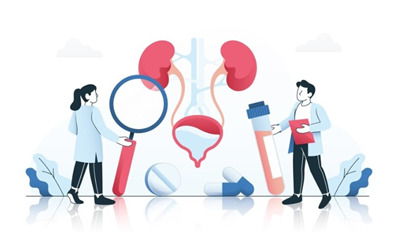
Compassionate Caregiver
In addition to his technical proficiency, Dr. Kulkarni is renowned for his kind care. He is aware of the toll kidney illnesses can have on patients and their families, both physically and psychologically. His kind demeanor soothes and reduces worry in anyone entrusted to his care. His exceptional combination of clinical skill and genuine empathy sets him apart as a renal specialist in Dubai.
Positive Patient Testimonials
The respect that Dr. Kulkarni's patients have for him speaks volumes about his abilities and commitment. Positive testimonies from patients attest to his thoroughness, knowledge, and friendliness. Numerous patients who received his care attested to their better quality of life and successful therapies. His reputation as the top nephrologist in Dubai is confirmed by these testimonies.
Community Involvement and Awareness
Additionally, Dr. Kulkarni is actively engaged in community education and outreach. He takes part in community education initiatives and public health campaigns to inform people about kidney health and the value of early detection. His work as a prominent figure in nephrology in Dubai is highlighted by his efforts to increase public awareness and provide easily available information, both of which have a substantial impact on public health.
Modern and Comfortable Clinic Environment
Dr. Kulkarni's clinic has a warm, inviting atmosphere that reflects his dedication to providing excellent patient care. Every element of the clinic, from the contemporary amenities to the kind and skilled personnel, is designed to make sure that patients have a great experience. This focus on detail guarantees that patients are comfortable throughout their appointments and improves the overall quality of care.
Innovative Treatments and Procedures
The core of Dr. Kulkarni's practice is innovation. To guarantee the greatest results for his patients, he uses the most recent therapies and techniques. His use of cutting-edge procedures distinguishes him as a top nephrologist, from minimally invasive surgical treatments to sophisticated dialysis choices. Patients can feel certain that they are getting the best nephrology care possible.
Emphasis on Holistic Health
With a holistic approach to nephrology, Dr. Kulkarni takes his patients' whole health and well-being into account. He offers lifestyle recommendations that can enhance overall well-being and kidney health, such as food and exercise. For individuals with renal problems, this holistic viewpoint is essential since it improves the quality of life and health outcomes.
Conclusion: Trust Dr. Amitabh Kulkarni for Your Kidney Health
Finally, it should be noted that Dr. Amitabh Kulkarni is the top nephrologist in Dubai, providing thorough care for a variety of renal disorders in addition to skilled kidney stone therapy. His dedication to ongoing education, state-of-the-art diagnostic and treatment facilities, and patient-centered approach make him the ideal choice for anyone looking for a kidney specialist. Patients may anticipate not only excellent medical care but also caring assistance and a comprehensive approach to wellness while working with Dr. Kulkarni. For the best possible health and well-being, you can trust Dr. Kulkarni as your kidney specialist, whether you're seeking preventive treatment or managing a chronic kidney issue.
#best nephrologist in dubai#nephrologist in dubai#kidney stone treatment#specialist for the kidney#kidney specialist doctor#doctor specialist for kidney
0 notes
Text
Renal Cysts: Deciphering the Mysteries of Cystic Kidney
The popularity of homeopathy has grown in alternative medicine due to the holistic treatment approach it offers to a variety of ailments. One area in which homeopathy has proven promising is in the treatment of kidney-related problems, which range from cysts and kidney infections to acute renal injuries and sometimes even kidney dysfunction.
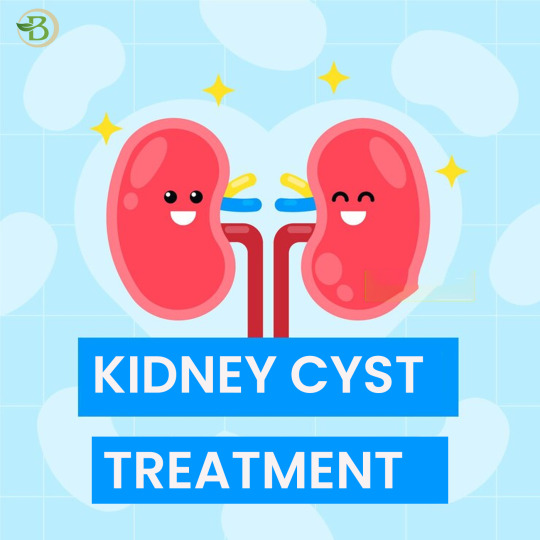
Homeopathic Remedies for Kidney Infection
Kidney problems, called pyelonephritis, are complex and disrupt your daily routine. Homeopathy has a range of treatments that can ease the symptoms and help support our body's own healing process.
Homeopathic Remedy for Kidney Infection is usually suggested for burning pain when urinating. Patients who can benefit from these remedies typically have the urge to urinate continuously but only pass small amounts every time.
If kidney inflammation is caused by swelling or stinging pain, it may be thought of as. This remedy is renowned for having anti-inflammatory qualities. It is also recommended to treat sharp, throbbing kidney pains which may spread into the bladder. They are believed to aid in helping eliminate kidney stones and ease the discomfort that comes with them.
Kidney Cyst Treatment through Homeopathy
The kidneys are prone to cysts. No matter how complex or straightforward, it causes discomfort and requires careful treatment. Homeopathic remedies seek to target and treat the root cause and improve kidney health. Kidney cyst treatments are usually suggested in cases of the sensation of pain or burning in the region of the kidneys. They can be helpful when kidney cysts are linked to anxiety and anxiety.
Furthermore, if kidney cysts are associated with a feeling of fullness and abdominal heaviness, it could be an indication of. It is believed that they affect the circulation and balance of fluids in the body. Patients who experience bloating and pain caused by kidney cysts, especially on the left side, can find relief through the use of natural homeopathic remedies. The remedy is believed to aid in the function of kidneys.
Homeopathy to treat acute kidney injury
An acute kidney injury (AKI) is an acute and frequently grave condition that requires immediate attention. While traditional medical treatment is vital, homeopathic remedies can be utilised as a complement to aid. If you are suffering from AKI that has a sudden appearance, anxiety, or anxiety, these remedies can be thought of as. It is believed that homeopathy kidney treatment can alleviate the symptoms that are similar to shocks commonly caused by acute kidney injuries. This treatment is usually suggested in the case of AKI, which causes burning and severe weakness. This remedy can be beneficial if there is a need for emotional and physical help during healing.
If AKI occurs, it is often accompanied by extreme sweating, weakness and a feeling of emptiness; some remedies can be considered as a possible natural cure.
Homeopathic Treatment for Kidney Failure
Kidney dysfunction is a situation where the kidneys cease to function effectively. Although traditional medical treatments like dialysis and transplantation are typically required, homeopathy can provide supportive therapy to improve the general health of people suffering from kidney failure.
Homeopathic remedies are frequently looked at by those with kidney problems that cause fatigue, weakness, or anxiety. The treatments are thought to impact the circulatory and respiratory systems. If you feel a sense of despair and hopelessness due to kidney failure, these solutions can be considered. They are frequently suggested for those suffering from mental and emotional stress.
They could be considered if you have a kidney problem and are prone to swelling and retention of fluid. It is believed to improve excellent circulation and ease symptoms of congestion.
Conclusion
While homeopathic remedies cannot be an alternative to conventional medical treatment, they can help support kidney health. It is crucial to talk with a trained professional homeopathic doctor or medical professional before adding these remedies to an overall acute kidney injury treatment plan, particularly for severe kidney problems. Like any other medical treatment, the individual response to homeopathic remedies may differ, and a holistic approach towards kidney disease that encompasses both alternative and conventional treatments could provide the most complete care. Be sure to communicate openly with your healthcare professionals to ensure a balanced and personalised treatment for kidney health.
#Homeopathic Remedy for Kidney Infection#kidney cyst treatment#homeopathic medicine for kidney failure#homeopathic medicine for kidney disease#homeopathic medicine for polycystic kidney#homeopathic medicine for renal cyst#Homeopathic treatment for kidney failure#Acute kidney injury treatment#homeopathy kidney treatment#Kidney Treatment by Homeopathy#Chronic Kidney Disease
0 notes
Text

Dr. Mudit Khurana, a seasoned Nephrologist and Renal Specialist, boasting an impressive 9-year journey in this domain. His educational foundation is robust, having accomplished MBBS from MGM Medical College, Indore in 2012, followed by MD in General Medicine from University College of Medical Sciences, Delhi University in 2015. Dr. Khurana’s pursuit of excellence led him to achieve DM in Nephrology from Sanjay Gandhi Postgraduate Institute of Medical Sciences in 2020. Dr. Mudit Khurana stands as the best nephrologist in Agra, showcasing unparalleled expertise in renal care. His proficiency extends to being the finest kidney specialist in Agra, bringing forth a combination of years of experience and exceptional education
Chronic Kidney Disease
Acute Kidney Failure
Diabetic Nephropathy Kidney Infections (Pyelonephritis) Cystic Kidney Disease Kidney Stones Glomerulonephritis Urinary Tract Infection Hypertension Dedicated Nephrology Practice Complete Solutions to Patient
#Chronic Kidney Disease#Acute Kidney Failure#Diabetic Nephropathy#Kidney Infections (Pyelonephritis)
1 note
·
View note
Text
#kidney failure#kidney disease#polycystic kidney disease treatment in ayurveda#kidney stones#kidney#ayurvedic medicine for kidney stones#ayurvedic treatment#acute renal failure#chronic kidney failure#chronic disease#chronic illness#chronic kidney disease
1 note
·
View note
Text
Nephrologist in Nelamangala, Bangalore: Comprehensive Guide
Introduction to Nephrology
Nephrology, the branch of medicine focused on kidney health, plays a crucial role in diagnosing and treating kidney diseases. With kidneys being essential for filtering blood, balancing fluids, and producing urine, maintaining their health is vital. Nephrologists are specialists dedicated to understanding and managing conditions related to kidney dysfunction, including chronic kidney disease (CKD), acute renal failure, and electrolyte imbalances. Nephrologist in Nelamangala Bangalore access to top-tier nephrology care is essential for those facing kidney-related health challenges.
Importance of Kidney Health
Kidneys perform several critical functions, including:
Filtering waste products and excess substances from the blood.
Regulating blood pressure through the renin-angiotensin system.
Maintaining electrolyte balance by managing levels of sodium, potassium, and calcium.
Producing erythropoietin, a hormone that stimulates red blood cell production.
Given these vital roles, any impairment in kidney function can lead to severe health complications, making the role of nephrologists indispensable.
Common Kidney Disorders and Their Management
Chronic Kidney Disease (CKD)
CKD is a progressive condition where kidney function deteriorates over time. It is often caused by diabetes, hypertension, and glomerulonephritis. Early detection and management are crucial to slow progression and prevent end-stage renal disease (ESRD).
Acute Kidney Injury (AKI)
AKI is a sudden loss of kidney function, often due to injury, severe infections, or medications. Timely intervention is necessary to restore function and prevent long-term damage.
Glomerulonephritis
This condition involves inflammation of the glomeruli, the tiny filtering units within the kidney. Causes include autoimmune diseases, infections, and certain medications. Treatment often involves managing the underlying cause and reducing inflammation.
Polycystic Kidney Disease (PKD)
PKD is a genetic disorder characterized by the growth of numerous cysts in the kidneys. Management focuses on controlling symptoms and slowing cyst growth through medications and lifestyle changes.
Advanced Diagnostic and Treatment Options
In Nelamangala, Bangalore, nephrologists employ state-of-the-art diagnostic tools and treatment modalities to manage kidney disorders effectively. These include:
Blood and Urine Tests
Routine blood and urine tests help monitor kidney function, detect abnormalities, and assess the severity of kidney disease.
Imaging Studies
Ultrasound, CT scans, and MRI are commonly used to visualize the kidneys and detect structural abnormalities, cysts, or tumors.
Kidney Biopsy
A kidney biopsy involves taking a small tissue sample for microscopic examination. It is essential for diagnosing specific kidney diseases and tailoring treatment plans.
Dialysis
For patients with severe kidney dysfunction, dialysis is a lifesaving procedure. It involves filtering waste products and excess fluids from the blood, mimicking the natural function of healthy kidneys. Two main types are hemodialysis and peritoneal dialysis.
Kidney Transplant
In cases of end-stage renal disease, a kidney transplant may be the best option. It involves replacing a diseased kidney with a healthy one from a donor. Post-transplant care is crucial to prevent rejection and ensure long-term success.
Leading Nephrology Centers in Nelamangala, Bangalore
Nelamangala, a rapidly growing suburb of Bangalore, is home to several renowned nephrology centers that offer comprehensive kidney care. These centers are equipped with advanced technology and staffed by experienced nephrologists dedicated to providing personalized care.
Nelamangala Nephrology Hospital
This facility is known for its state-of-the-art infrastructure and a team of highly skilled nephrologists. Services include advanced diagnostics, dialysis, and kidney transplant programs. The hospital’s patient-centric approach ensures high-quality care and better health outcomes.
Bangalore Kidney Care Center
Located in the heart of Nelamangala, this center specializes in treating a wide range of kidney disorders. The center offers a full spectrum of services, including preventive care, early diagnosis, and advanced treatment options such as dialysis and transplantation.
Global Health Nephrology Institute
This institute is a leading name in kidney care, known for its comprehensive services and cutting-edge technology. The institute’s multidisciplinary team approach ensures holistic care for patients, addressing both medical and lifestyle aspects of kidney health.
Preventive Measures for Kidney Health
Healthy Diet
A balanced diet rich in fruits, vegetables, whole grains, and low in sodium can significantly impact kidney health. Avoiding processed foods and controlling blood sugar levels are essential for preventing diabetes-related kidney damage.
Regular Exercise
Physical activity helps maintain a healthy weight, reduce blood pressure, and improve overall kidney function. Aim for at least 30 minutes of moderate exercise most days of the week.
Hydration
Staying well-hydrated supports kidney function by aiding in the elimination of toxins. However, individuals with kidney disease should follow their nephrologist’s advice on fluid intake.
Regular Check-ups
Routine medical check-ups and screenings for kidney function can detect issues early, allowing for timely intervention and better management of potential problems.
Avoiding Overuse of Medications
Non-prescription medications, especially pain relievers like NSAIDs, can harm the kidneys if used excessively. Always consult a healthcare provider before starting or continuing any medication regimen.
Conclusion
In Nelamangala, Bangalore, the availability of top-notch nephrology services ensures that residents have access to the best possible kidney care. From advanced diagnostics to cutting-edge treatment options, nephrologists in this region are well-equipped to handle the complexities of kidney disorders. By prioritizing kidney health through preventive measures and regular check-ups, individuals can significantly reduce the risk of developing severe kidney conditions.
For more information on maintaining kidney health and finding the right nephrologist in Nelamangala, contact your local healthcare provider today.
Read More : https://www.amruthahospital.com/services/nephrology/
0 notes
Text
Lead poisoning can be caused by the ingestion of paint chips, consumption of moonshine made in lead-lined radiators, and working in factories that use lead-containing casting materials such as battery or ammunition factories. Many toxic substances can have similar symptoms such as abdominal pain, nausea, vomiting, and diarrhea. Common long-term exposure symptoms including chronic abdominal pain, distal sensorimotor neuropathy, and microcytic anemia.
Lead denatures enzymes involved in hemoglobin synthesis such as ferrochelatase, ALA dehydrase, and ribonuclease, which can lead to laboratory abnormalities including hypochromic, microcytic anemia with basophilic stippling of red blood cells. Lead poisoning leads to acute and chronic symptoms depending on the time and amount of exposure but is commonly associated with abdominal pain, diarrhea, encephalopathy, peripheral neuropathy (more commonly motor, but can be sensory as well), and renal failure. Lead poisoning is best treated with chelating agents such as succimer or dimercaprol, but the definitive treatment involves removing the source of exposure.
Arsenic poisoning causes nausea, vomiting, diarrhea, abdominal pain, garlic odor of breath and stool, QTc prolongation, shock, ARDS; chronic arsenic poisoning causes hyperpigmented and hypopigmented skin lesions, hyperkeratosis of skin, Mee's or Beau's lines (on nails), symmetrical sensorimotor polyneuropathy. Exposures include: contaminated drinking water via pesticides, pressure-treated wood, semiconductors, fuel combustion, metallurgy, smelting.
Mercuty poisoning causes stomatitis, inflammation of the gums, nausea, vomiting, diarrhea, conjunctivitis, dermatitis. Chronic symptoms incude: neuropsychiatric features including anxiety, irritability, insomnia, depression, tremor, pathologic shyness, memory loss. Exposure to organic mercury: swordfish, shark, mackerel, tuna. Exposure to elemental mercury: smelting operations, electroplating operations, tooth fillings in dental offices.
The antidote to all of these is chelating agents: succimer, dimercaprol
The 2 tests for latent TB are the tuberculin skin test using purified protein derivative (PPD) and the interferon-gamma release assay. Both tests look for an immune reaction to mycobacterial antigens, which requires prior or ongoing infection. Both tests will be positive with either active or latent TB, and neither test can tell the difference between them. The first step after a positive PPD test or interferon-gamma release assay is to determine if there is ongoing active TB. This step is usually done through history and examination and with limited imaging, such as a chest x-ray. If active TB is ruled out, treatment for latent TB is recommended if the risks of treatment are outweighed by the risks of reactivation. In all cases, these risks and benefits of treatment should be discussed with the patient. In general, treatment does not cure latent TB, but it significantly decreases the risk of eventual reactivation.
The more immunosuppressed a person is, the smaller the area of induration needed for a positive test. This approach is based on the idea that with escalating immunosuppression, the reaction to the antigen will be less, leading to a smaller reaction.
4 notes
·
View notes
Text
General Nephrology | NU Hospitals

General Nephrology deals with the treatment and management of Nephrotic Syndrome, Acute Nephritic Syndrome, Acute Renal Failure, and Chronic Renal Failure.
#Best Nephrology Hospital in Bangalore#Top Nephrology Hospital in Bangalore#Nephrology Specialist in Bangalore#Nephrology speciality Hospital in Bangalore#Nephrotic Syndrome Hospitals in Bangalore
0 notes